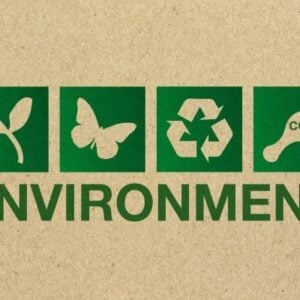Over 150 participants from 20 countries, including ministers of finance, development partners, UN agencies, private investors, and civil society representatives, gathered in Bangkok for the Inclusive Climate Finance Dialogue for a Resilient Asia-Pacific. Co-organized by the UNDP Climate Finance Network (CFN) and the UN Capital Development Fund (UNCDF) with support from partners including the UK and Sweden, the dialogue highlighted the urgent need for climate finance in one of the world’s most climate-vulnerable regions, home to 60% of the global population. Rising climate risks are increasingly threatening ecosystems and livelihoods, with women and marginalized groups among the hardest hit, while funding gaps are growing faster than available resources.
Christophe Bahuet, UNDP Deputy Regional Director for Asia and the Pacific, emphasized that each climate-related disaster first becomes a human crisis and then a fiscal one. Examples from across the region showcased innovative financing mechanisms, including Tonga’s climate trust fund, Indonesia’s green sukuk raising over USD 10 billion, Thailand’s Sustainability Linked Bonds, and Bangladesh’s gender-responsive budgeting and “Orange Bonds” for local governments. These initiatives demonstrate the potential of both large and small-scale approaches to mobilize climate finance effectively.
Locally-led adaptation efforts are gaining momentum through the Performance-Based Climate Resilience Grant (PBCRG) mechanism designed by UNCDF. Countries including Bangladesh, Cambodia, Nepal, Tuvalu, and the Solomon Islands are strengthening local planning and budgeting for climate adaptation in gender-sensitive ways. Cambodia is preparing to establish a Sub-National Climate Finance Fund, while Bangladesh and Cambodia are expanding direct access to climate funds for local governments, enabling more targeted and inclusive adaptation investments.
The dialogue provides a crucial platform to maintain momentum for climate finance amidst shifting geopolitics and competing development pressures. Over three days, participants explored strategies to optimize public budgets for climate action, align governments, businesses, and philanthropic partners to close funding gaps, and deliver high-impact locally-led adaptation investments. Emphasis was placed on the use of data and digital tools to increase transparency, effectiveness, and accountability in climate finance.
Maria Perdomo, Regional Investment Team Lead at UNCDF, highlighted the urgent need for private sector capital to flow toward climate action, particularly in fragile and crisis-affected countries and communities across Asia-Pacific. With declining official development assistance—projected to drop 9–17% in 2025—the dialogue reinforced the importance of blended finance solutions to de-risk investments and support small and medium-sized enterprises and financial intermediaries, often overlooked by conventional institutions.
The dialogue also served as a forum for peer learning, enabling countries to exchange experiences and accelerate progress on their Nationally Determined Contributions (NDCs) and National Adaptation Plans (NAPs). Partners emphasized that climate finance is not only a matter of fairness but survival. John Warburton of the UK Foreign, Commonwealth and Development Office and Annamaria Oltorp of the Swedish Embassy highlighted the importance of equitable, sustainable financial systems to protect vulnerable communities, foster resilience, and drive collective climate action.
As the Inclusive Climate Finance Dialogue concluded on 28 August, participants focused on identifying pathways for stronger collaboration, new financing initiatives, and practical mechanisms to accelerate climate finance access. The event reinforced that Asia-Pacific countries possess the leadership, tools, and innovative approaches needed to transform climate finance into actionable resilience for communities and ecosystems across the region.






